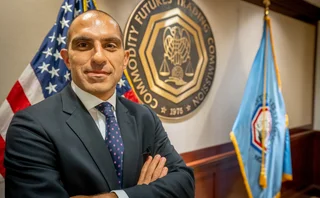
Obama administration favours a single banking regulator
US press report suggests the White House is close to recommending a plan opting for a single banking regulator
WASHINGTON, DC - Obama administration officials are close to recommending that Congress create a single regulator to oversee the entire banking sector, according to a report in The Wall Street Journal.
The creation of a new banking regulator will form the basis of a proposal currently in development by the Treasury Secretary Timothy Geithner and White House officials, which will be sent to Capitol Hill in mid-June, says the paper. But sources involved in the process were quick to point out that this could still all change by the time the proposal is finalised.
The idea is to consolidate the Office of the Comptroller of the Currency and the Office of Thrift Supervision into the new agency and strip supervisory powers from the Federal Reserve and the Federal Deposit Insurance Corporation (FDIC). However, in keeping with the long-touted plan to create a systemic regulator that would have responsibility for identifying any systemic threats from financial institutions, products or market practices, under the new plan the Federal Reserve Board and the FDIC would be responsible for overseeing such systemic risks.
The proposal also gives new powers to the FDIC to be able to take large financial companies that aren't banks into receivership. This measure has been vehemently opposed by the American Banking Association in an open letter to Timothy Geithner.
"The ABA does oppose proposals to make the FDIC the systemic resolution authority," reads the letter from ABA president and CEO Edward Yingling. "While the FDIC has experience and a well-deserved reputation with respect to resolving bank failures, future failures of systemically important institutions could involve a broad range of institutions - securities firms, insurance companies, or even hedge funds.
The FDIC is seen by the public as the insurer of bank deposits. Consumer confidence in this insurance system for bank deposits has prevented bank runs for decades. This consumer confidence in the FDIC should not be undermined by having the FDIC directly involved in the failures of all types of institutions... Furthermore banks, which pay all costs of the FDIC, should not pick up the tab to run an infrastructure created to deal with future non-bank resolutions."
The letter also goes on to criticise the creation of a single banking regulator with just as much vehemence. It reads: "The ABA is adamantly opposed to this concept because we believe it would, as a practical matter, be the end of a true dual banking system. Such a federal regulatory agency would undoubtedly have a strong bias towards federally regulated institutions. Therefore, state-regulated banks would be at a disadvantage."
Barney Frank, chairman of the House Finance Committee, has also criticised the plan, saying the model appeared to be based on the UK system where the Financial Services Authority has overarching control of banking regulation, which he was keen to point out on CNBC, also failed to prevent the financial crisis in the UK.
With Christopher Dodd, chairman of the Senate Banking Committee, declaring his opposition to giving the Fed new powers for systemic oversight, once a proposal is released by the White House we can expect a significant fight on the Hill.
Only users who have a paid subscription or are part of a corporate subscription are able to print or copy content.
To access these options, along with all other subscription benefits, please contact info@risk.net or view our subscription options here: http://subscriptions.risk.net/subscribe
You are currently unable to print this content. Please contact info@risk.net to find out more.
You are currently unable to copy this content. Please contact info@risk.net to find out more.
Copyright Infopro Digital Limited. All rights reserved.
You may share this content using our article tools. Printing this content is for the sole use of the Authorised User (named subscriber), as outlined in our terms and conditions - https://www.infopro-insight.com/terms-conditions/insight-subscriptions/
If you would like to purchase additional rights please email info@risk.net
Copyright Infopro Digital Limited. All rights reserved.
You may share this content using our article tools. Copying this content is for the sole use of the Authorised User (named subscriber), as outlined in our terms and conditions - https://www.infopro-insight.com/terms-conditions/insight-subscriptions/
If you would like to purchase additional rights please email info@risk.net
More on Regulation
Industry calls for major rethink of Basel III rules
Isda AGM: Divergence on implementation suggests rules could be flawed, bankers say
Saudi Arabia poised to become clean netting jurisdiction
Isda AGM: Netting regulation awaiting final approvals from regulators
Japanese megabanks shun internal models as FRTB bites
Isda AGM: All in-scope banks opt for standardised approach to market risk; Nomura eyes IMA in 2025
CFTC chair backs easing of G-Sib surcharge in Basel endgame
Isda AGM: Fed’s proposed surcharge changes could hike client clearing cost by 80%
UK investment firms feeling the heat on prudential rules
Signs firms are falling behind FCA’s expectations on wind-down and liquidity risk management
The American way: a stress-test substitute for Basel’s IRRBB?
Bankers divided over new CCAR scenario designed to bridge supervisory gap exposed by SVB failure
Industry warns CFTC against rushing to regulate AI for trading
Vote on workplan pulled amid calls to avoid duplicating rules from other regulatory agencies
Bank of Communications moves early to meet TLAC requirements
China Construction Bank becomes last China G-Sib to release TLAC plans







